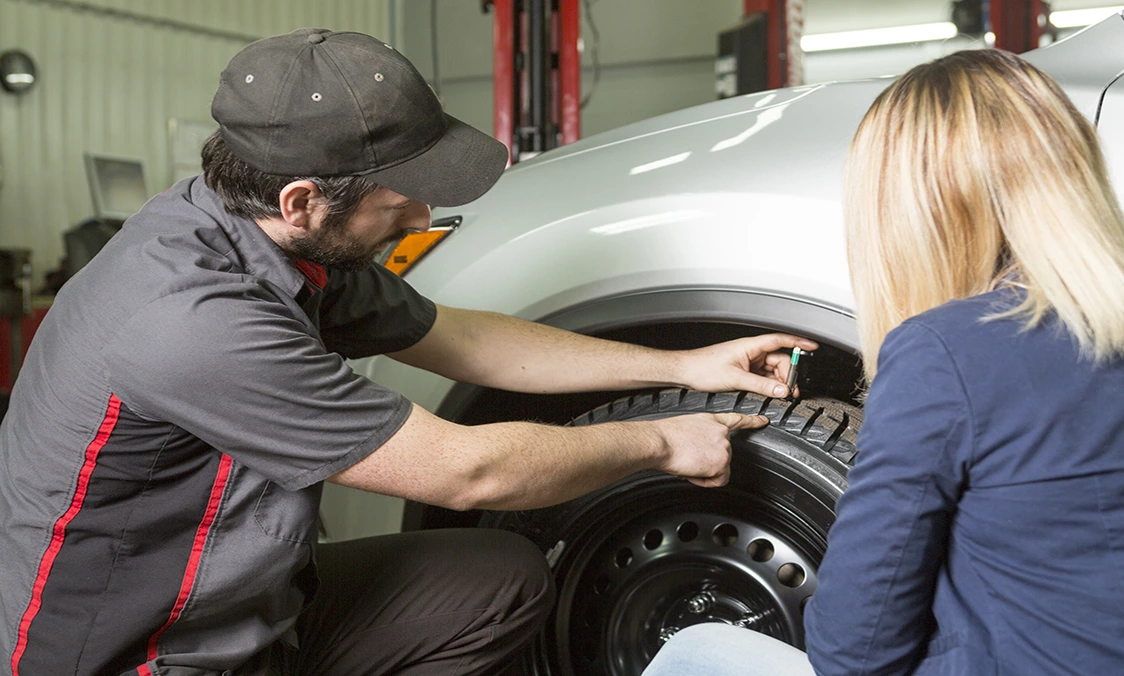PCV Valve Replacement
July 24, 2022
Hello Royal Oak, let's talk about your often-unnoticed but extremely important PCV valve. The energy from exploding fuel is what powers your engine. But some of the vapors from the explosions escape into the lower part of the engine, called the crankcase. The crankcase is where your engine oil hangs out. These gases are about 70% unburned fuel. If the gases were allowed to stay in the crankcase, they would quickly contaminate the oil and turn it to sludge. Royal Oak folks know that sludge is one of the biggest enemies of your engine, clogging it up and eventually leading to expensive failures. Also, the pressure buildup would cause seals and gaskets to blow out. Therefore, these gases need to be vented out.
Pre-1963, gasoline engines had a hose that let the fumes vent out into the air. In 1963, the federal government required gas engines to have a special one-way valve installed to help reduce dangerous emissions. (Can you imagine how polluted our Michigan air would be if every car had been releasing those poisonous fumes for the last 50 years?) Diesel engines are not required to have these valves.
The positive crankcase ventilation (PCV) valve routes crankcase gases through a hose and back into the air intake system where they are re-burned in the engine. Fresh, clean air is brought into the crankcase through a breather tube. It's really a pretty simple system, but it does the job. The re-circulating air removes moisture and combustion waste from the crankcase, preventing sludge. This extends not only the life of your oil but the engine as well. The PCV relieves pressure in the crankcase, preventing oil leaks.
Eventually, the PCV valve can get gummed up. Then it can't move enough air through the engine to keep it working properly for Royal Oak vehicles. If the PCV valve is sticking enough, you could have oil leaks, excess oil consumption and a fouled intake system. If you experience hesitation, surging or an oil leak, it may be a sign of PCV valve problems. Your vehicle's owner's manual may give a recommendation for when the PCV valve should be replaced - usually between 20,000 mi/32,000 km and 50,000 mi/80,000 km. Unfortunately, some don't list a recommendation in the manual, so it can be easy to overlook.
Many PCV system problems can be diagnosed by our technicians at TLC Custom Exhaust Brakes & Tires . Fortunately, PCV valve replacement is both quick and inexpensive at TLC Custom Exhaust Brakes & Tires. Proper oil changes will greatly extend the life of the PCV valve. Skipping a few recommended oil changes can allow varnish and gum to build up in the valve, reducing its efficiency. So now when your Royal Oak service technician tells you its time to replace your PCV valve, you will know what he's talking about. If you have had your car for a while and this is the first you've ever heard of a PCV valve, ask your technician to check yours out or call TLC Custom Exhaust Brakes & Tires at 248-541-8300.
TLC Custom Exhaust Brakes & Tires
1735 N Main St
Royal Oak, Michigan 48067
248-541-8300
http://www.tlcautocareroyaloak.com
Need Service?
More articles from TLC Auto Care

A Bright Spark (Ignition Coil Replacement)
May 11, 2025
Ever wonder how your vehicles engine is able to take the 12-volts from its battery and ramp that up to as high as the tens of thousands of volts it takes to fire its spark plugs? The secret is something called an ignition coil. Most newer vehicles have an ignition coil at each cylinder, but olde... More

The Engine Gets a Boost (Turbocharged Engine Maintenance)
May 4, 2025
If someone told you that your vehicle could have the same power but with a smaller engine, wouldn't that sound like great idea? Just think, a smaller engine would save you money at the gas station and you'd still get the same horsepower. The technology to do just that has been around for a long t... More

The Byte Stuff (Your Vehicle's Computers)
April 27, 2025
Nobody has to tell you that computers are a part of so many things in our lives. Smartphones, kitchen appliances, vacuum cleaners, televisions. You name itit has a computer in it. And your vehicle is no exception. The earliest cars relied on the technology of their time, and there was no such ... More










